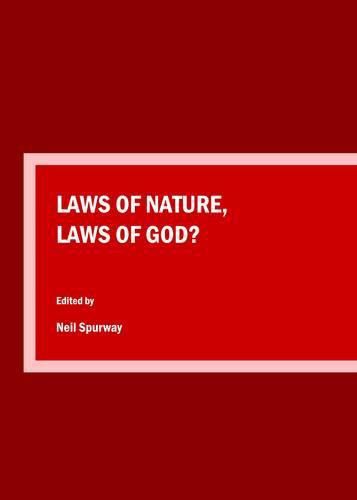Readings Newsletter
Become a Readings Member to make your shopping experience even easier.
Sign in or sign up for free!
You’re not far away from qualifying for FREE standard shipping within Australia
You’ve qualified for FREE standard shipping within Australia
The cart is loading…






Up until the time of Newton, scientists regarded the understandings of the physical world, at which they were arriving, as glimpses of the working of the Creator’s mind. Thus, the generalisations being formulated about the behaviour of matter - the Laws of Nature - were seen as the Creator’s injunctions, to created matter, as to how it was to act. They were laws in the same sense as laws, Divine or human, about how people should behave: that is why the same word was used for both. And even now, scientific laws are occasionally spoken of as being obeyed !However, it is doubtful whether any practising scientist, religious believer or not, now thinks of laws in the way that the word literally implies. How, instead, scientists do or should view scientific laws has been debated since the time of Hume and Kant, and it is a vigorous field of investigation among current philosophers of science.In this book, scientists (physical and biological), historians and students of ideas, all of them theologically informed, tackle this topic from many angles. They do so in relation to the lead public lecture at the conference from which the book stems, given by the eminent and iconoclastic philosopher of science, Professor Nancy Cartwright. She asked the question, How could laws make things happen? , and her answer was They couldn’t!
$9.00 standard shipping within Australia
FREE standard shipping within Australia for orders over $100.00
Express & International shipping calculated at checkout
Up until the time of Newton, scientists regarded the understandings of the physical world, at which they were arriving, as glimpses of the working of the Creator’s mind. Thus, the generalisations being formulated about the behaviour of matter - the Laws of Nature - were seen as the Creator’s injunctions, to created matter, as to how it was to act. They were laws in the same sense as laws, Divine or human, about how people should behave: that is why the same word was used for both. And even now, scientific laws are occasionally spoken of as being obeyed !However, it is doubtful whether any practising scientist, religious believer or not, now thinks of laws in the way that the word literally implies. How, instead, scientists do or should view scientific laws has been debated since the time of Hume and Kant, and it is a vigorous field of investigation among current philosophers of science.In this book, scientists (physical and biological), historians and students of ideas, all of them theologically informed, tackle this topic from many angles. They do so in relation to the lead public lecture at the conference from which the book stems, given by the eminent and iconoclastic philosopher of science, Professor Nancy Cartwright. She asked the question, How could laws make things happen? , and her answer was They couldn’t!